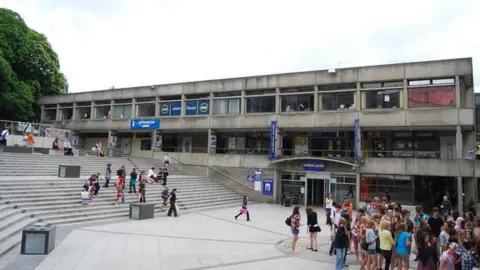University of East Anglia ups support after student death
 N Chadwick/Geograph
N Chadwick/GeographA university has said it is investing more money in its student support services, as it confirmed the death of a fourth student in a year.
First-year student Theo Brennan Hulme was found dead in his room at the University of East Anglia on Tuesday.
Prof David Richardson said the extra £250,000 - a 55% increase - would pay for extra wellbeing staff, more mental health training and online resources.
The vice-chancellor said the death of a student "affects our community deeply".
A petition calling for the UEA to take "more active measures" attracted more than 500 signatures within two hours.
The Norwich-based university's support service budget rose from £368,000 in 2016/17 to £450,000 in 2017/18, and the latest investment will take the 2018/19 budget to £700,000.
'Warm and personable'
Tributes have been paid to Theo Brennan Hulme, who studied England Literature and Creative Writing.
Alison Donnell, head of the school of literature, drama and creative writing (LDC), said: "Theo was a warm and personable young man and highly regarded by his lecturers, tutors and classmates as a talented writer with a huge amount of promise."
He would be "greatly missed by all of us", she added.
Allow X content?
Mr Hulme is the fourth student at the university to die since May 2018.
Second-year psychology student Jonathan Walker, 23, died on May 13, and law student Jess Fairweather, 20, died on 11 October. Inquests found they had each taken their own life.
Last month, the body of 25-year-old Nick Sadler was found in the lake at the university after a week-long search.
Prof Richardson urged staff or students to seek help if they needed it.
He said: "Don't think that your problem is not severe enough to ask for help, or that help is not there. It is."
For information and support with mental health issues, visit the BBC Action Line or call Samaritans at any time on 116 123.
